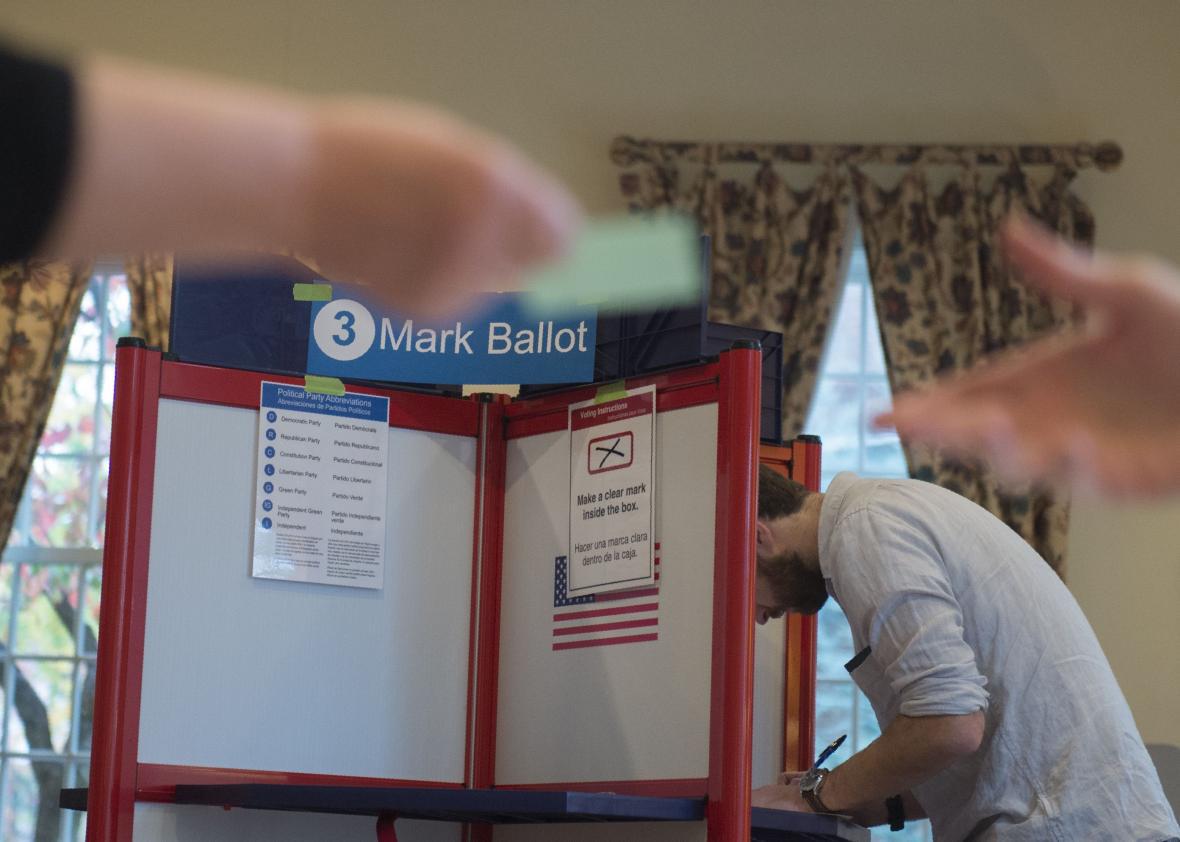Greetings, Future Tensers,
While temporarily deleting Trump’s Twitter account might have made one former Twitter employee feel really great this week, many of us aren’t feeling gleeful about the anniversary of the 2016 election. (If this means you, turn off Facebook’s “On This Day” feature on your account.) April Glaser reports that Russian trolls targeted not just susceptible white voters, but activists and people of color as well, likely funded through pages like this one. Unfortunately, as demonstrated by unverified news videos on YouTube about the deadly mass shooting in Sutherland Springs, Texas, on Sunday, fake news is still a problem. Which is why media literacy education should start when children are still young, argues Lisa Guernsey.
Between the Russia investigation and the anniversary of Trump’s victory, people are talking about election hacking more than ever. But we need to be careful to distinguish between the three different kinds of election cybersecurity threats, argues Emefa Addo Agawu.
While our social media is an unfriendly reminder of the 2016 election, it’s not like the endless news cycle has ever let us forget. This interactive timeline and breakdown from the Slate team explains how push alerts have taken over our lives in the past year.
Other things we read while downloading this plug-in to save us from Twitter’s twisted new 280-character hell.
- Face value: Before you upgrade to the iPhone X, read Christina Bonnington’s important warning on how security loopholes could let Apple give away private data collected by FaceID.
- Robot rights: Saudi Arabia recently granted citizenship to a robot. John Frank Weaver explains how the cheesy PR stunt could actually danger American democracy as we know it.
- NASA-ty business: Neel V. Patel explains how Trump’s new NASA appointment could hurt the agency’s important work in Earth science research, which is critical to fighting climate change.
- All bark, no bite: Sony is bringing back its beloved AIBO with some new tricks, but here’s why it’s a step backward for robots.
- Privacy victory: A major court ruling could finally protect Indian citizens from unfettered data collection. Spandana Singh explains what the decision will and won’t change.
- Mind reading: Jacob Brogan explains how new research could combine machine learning and fMRI’s to help doctors detect suicidal ideation—though it’s far too early for prime time.
Join us in Washington or online for our upcoming events:
TODAY: Why Should We Imagine Solar Flares Taking Down International Space Stations?
What happens when a catastrophic solar flare paralyzes global space agencies and throws world order into chaos? Deji Olukotun’s new novel, After the Flare, can help us imagine how such scenarios could play out in real life. Join us on Nov. 8 for a happy-hour event in Washington to discuss the novel and what we can learn about global tech policy through science fiction. RSVP to attend in person or online here.
Nov. 14: History of the Future
What can kitschy visions of robotic kitchens tell us about how we envisioned a post–World War II domestic life? How did film and television influence our understanding of emerging technologies? Join us in Washington at noon on Nov. 14 to explore yesterday’s visions of today, and their lessons for tomorrow. RSVP to attend in person or online here.
Feeling justified about my emoji obsession,
Tonya Riley
Future Tense Research Associate
Future Tense is a partnership of Slate, New America, and Arizona State University.
